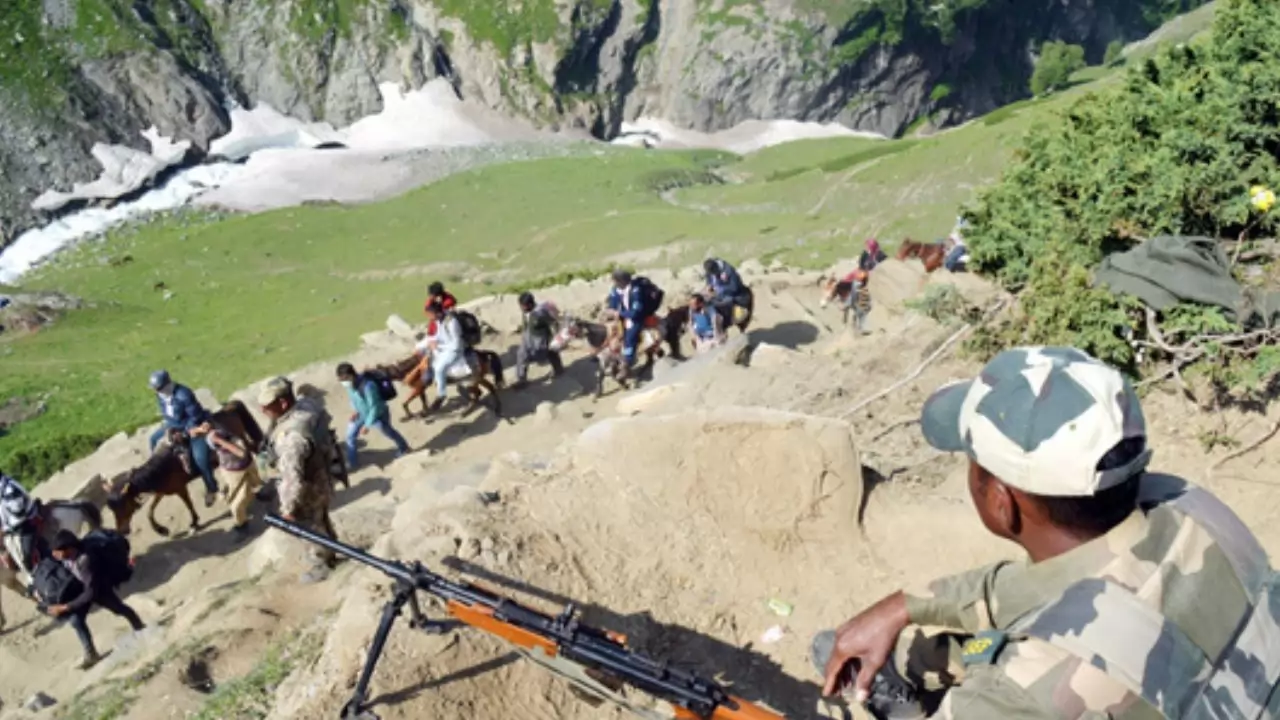
X
New Delhi: In a tragic escalation of violence, the recent terrorist attack in Reasi, Jammu, and Kashmir, has left nine civilians dead and 30 others injured. The Pakistan-backed terrorist group The Resistance Front (TRF), an offshoot of Lashkar-e-Taiba, has claimed responsibility for this heinous act. This incident has intensified safety concerns in the region, particularly with the upcoming Amarnath Yatra, which attracts hundreds of thousands of pilgrims, approximately over 4 lakh annually.
In addition to the 4,000 troops who were sent in earlier to stop infiltration and conduct massive counterterrorism operations, the Indian Army has now stationed nearly 5,000 more troops in Kashmir to protect pilgrims during the yearly Amarnath Yatra due to a growing perception of threat. According to officials, the security forces are facing significant difficulty due to the peaceful conduct of the yatra.
The attack in Reasi is the latest in a series of violent incidents that have rocked Jammu and Kashmir. The assault, which resulted in significant civilian casualties, has sent shockwaves through the community. In the past two months, similar attacks in Rajouri and Poonch have claimed eight more lives, highlighting a disturbing trend of increasing violence in the region. In response to the Reasi attack, security forces have launched a massive manhunt and increased drone surveillance to track down the perpetrators and prevent further incidents.
The TRF's claim of responsibility for the Reasi attack came with a chilling warning that this was just the beginning. Such threats have put authorities on high alert as the Amarnath Yatra approaches. Scheduled to commence on June 29, the Yatra is expected to see over 400,000 pilgrims journeying to the holy shrine. The safety of these pilgrims is now a top priority, with heightened security measures being implemented to ensure their protection.
The recent surge in terrorist activities has deeply affected the local population in Kashmir. The continuous threat of violence has created an atmosphere of fear and uncertainty, disrupting daily life and livelihoods. The repeated attacks have also strained the region's security apparatus, compelling authorities to reassess and bolster their strategies to safeguard civilians and maintain order.
The targeting of pilgrims by terrorist groups in Jammu and Kashmir is not a new phenomenon. Over the years, several attacks have aimed at undermining the region's stability and deterring religious tourism, which plays a crucial role in the local economy. The pattern of violence underscores the persistent threat posed by terrorist organizations and the need for robust security measures to protect both residents and visitors.
In light of the recent attacks, the government has ramped up security across Jammu and Kashmir. Enhanced surveillance, increased troop deployments, and stricter checkpoints are some measures being enforced to prevent further incidents. The authorities also focus on intelligence gathering and community engagement to identify potential threats and improve preparedness. The recent attack in Reasi has underscored the ongoing security challenges in Jammu and Kashmir. As the region braces for the Amarnath Yatra, ensuring the safety of pilgrims and residents alike has become a paramount concern. The government's proactive measures and the community's resilience will be crucial in navigating these turbulent times and restoring peace in the valley.





Copyright © 2025 Top Indian News
